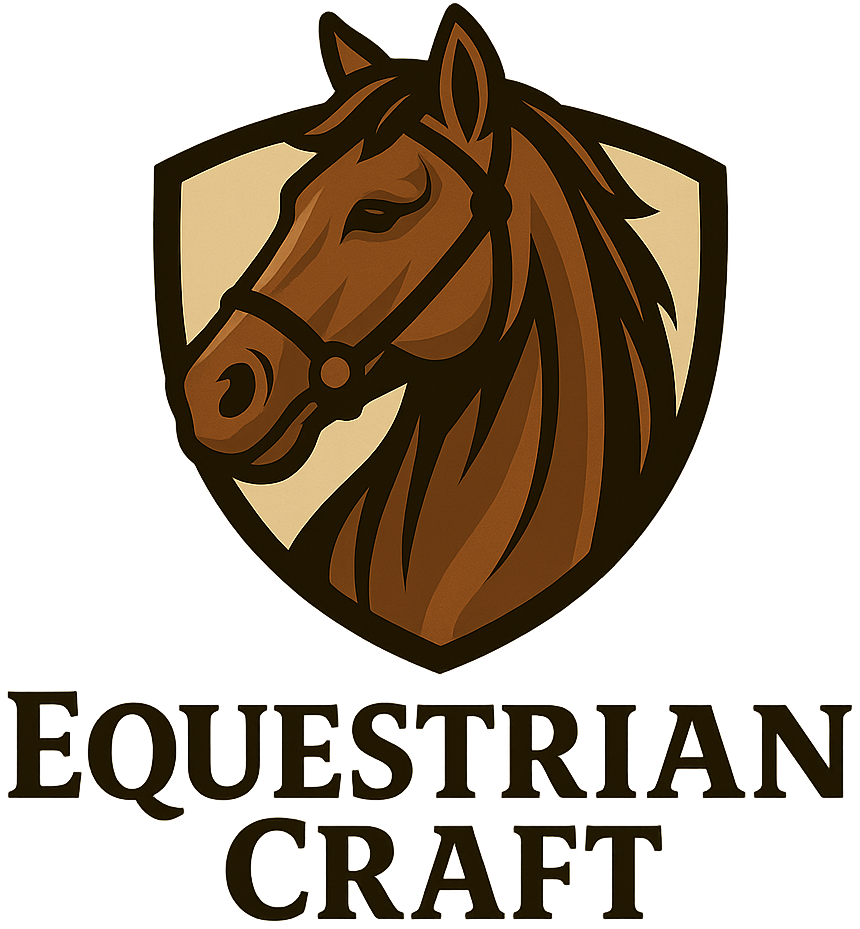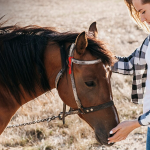Spending time around horses has given me more than practical experience, it’s stirred my curiosity about the deeper connections people have had with horses across history. That’s what led me to explore the symbolism of horses in folklore. From ancient mythology to local superstitions, these animals have always carried powerful meanings. I started noticing that horses weren’t just seen as transportation or tools; they were figures of mystery, magic, and reverence across every culture I encountered.
Looking into their symbolic roles helped me understand why our bond with them feels so instinctive. Horses appear in tales as guardians, tricksters, healers, and even divine beings. Each story reflects something about the society that told it, and something about the timeless human desire to connect with strength, freedom, and the unknown.
Horses As Symbols Of Freedom And Power
One of the most common themes I found when researching the symbolism of horses in folklore is their connection to freedom. That image of a wild horse galloping across open plains isn’t just poetic, it’s deeply rooted in cultural memory. In many indigenous traditions, especially among Native American tribes, the horse represents unbridled spirit and the ability to move between worlds. Some tribes viewed horses as sacred gifts from the Great Spirit, and taming one was seen as forming a sacred bond, not just capturing an animal.
In Norse mythology, horses like Sleipnir, the eight-legged steed of Odin, symbolized power and transcendence. Sleipnir wasn’t just fast; he could travel between the worlds of the living and the dead. That imagery stuck with me because it captures the horse’s dual nature: grounded in earth, but somehow otherworldly.
Even in stories closer to home, horses are often seen breaking boundaries, running faster than the wind or escaping traps that no human could. Their speed and strength become metaphors for human ambition, especially the desire to overcome limitations.
Guardians Between Worlds
One of the more fascinating aspects I came across while studying the symbolism of horses in folklore was their frequent role as guardians or guides between realms. In Celtic legends, horses were often tied to the Otherworld, a mysterious realm of gods, spirits, and ancestors. The white horse in particular showed up time and again as a guide leading heroes or the recently deceased to this spiritual realm.
In Welsh mythology, the goddess Rhiannon rides a white horse and is often associated with the moon, dreams, and transition. She appears to mortals but always just out of reach, her horse gliding across the land without ever touching the ground. The message is subtle but powerful: horses exist on the boundary between the seen and unseen, physical and spiritual.
I found similar themes in Slavic folklore. The “Dappled Grey,” a magical talking horse, often appears as the hero’s companion in Eastern European tales. Not only does the horse speak, but it knows the right path, often better than the rider. That really made me think about how ancient people respected the wisdom of horses in ways that went far beyond practical use.
Horses As Omens And Messengers
Another recurring theme in the symbolism of horses in folklore is their role as harbingers. In some stories, horses appear before a major event, often death, transformation, or battle. In Irish lore, the “Púca” is a shape-shifting creature that sometimes takes the form of a black horse. It offers rides to travelers but often leads them into strange, even dangerous situations. The Púca teaches caution, but also curiosity. It’s not evil, but it’s unpredictable, a reminder that nature cannot be fully tamed.
In Greek mythology, horses were sacred to Poseidon, god of the sea. He was believed to have created them from the waves, and white horses were often seen as signs of storms or divine intervention. That kind of symbolism made me reflect on how often horses in stories seem to be more in tune with fate than humans are.
Even modern folk tales preserve this connection. In some cultures, hearing the sound of hooves at night without seeing a horse is considered an omen, good or bad depending on the region. That eerie presence emphasizes the idea that horses are always aware of more than we are.
Horses In Dreams And Superstitions
As I read more, I started noticing how many superstitions and dream interpretations involve horses. In traditional dream lore, dreaming of a black horse could symbolize mystery or untapped potential, while a white horse might represent purity or a spiritual journey. I found old European superstitions where a horse refusing to enter a home was a sign of death or illness in the family. Conversely, a calm, friendly horse could bring blessings.
In Romani tradition, horses are seen as deeply intuitive. If a horse shied away from someone, it meant that person had an unclean or harmful spirit. This belief gave horses a role not just as protectors, but as truth-revealers, guides who could sense danger long before it appeared.
These beliefs resonated with me because I’ve seen how perceptive horses can be. They react to subtle cues, moods, and even energies. It made sense that people would see them as spiritual barometers, and that folklore would reflect their uncanny awareness.
The Horse In Death And The Afterlife
The connection between horses and death isn’t always grim. In many cases, it represents safe passage. In Hindu mythology, Yama, the god of death, rides a black buffalo or a horse and carries souls to the afterlife. In Viking culture, warriors were sometimes buried with their horses, believing the animal would carry them into Valhalla.
In Chinese folklore, celestial horses were said to pull the chariots of the gods. Their movement wasn’t just literal; it signified elevation, rising from the mortal world to something greater. Horses weren’t just companions in life but trusted carriers into eternity.
That idea stuck with me, the thought that a horse could accompany you not only through your life’s journey but beyond it. It added a spiritual weight to my everyday rides. Each hoofbeat echoed not just through the dirt beneath me, but through a long line of tradition and belief.
Horses And Royalty
The symbolism of horses in folklore often aligns them with nobility and leadership. From King Arthur’s steed Llamrei to Alexander the Great’s famous horse Bucephalus, royal and heroic figures are almost never shown without a noble mount.
In many cultures, the type of horse a person rode reflected their status. White horses were reserved for kings and saints. Black horses were used by warriors. The horse didn’t just carry the rider, it announced who they were and what they represented.
Stories from India describe divine horses like Uchchaihshravas, born of the ocean and ridden by the king of gods. These horses weren’t just beautiful, they were divine beings in their own right. Reading those stories reminded me that even today, we still associate horses with grandeur and legacy.
Trickster Horses And Cautionary Tales
While many stories celebrate the nobility of horses, others serve as cautionary tales. Folklore from Scotland tells of the Kelpie, a shape-shifting water spirit that appears as a horse. The Kelpie lures people onto its back, then dives into the water to drown them. It’s a chilling reminder that not all beauty is safe.
These tales weren’t just about frightening children; they reflected real dangers. Lakes and rivers posed risks, and wild animals couldn’t always be trusted. By giving danger a familiar form, a horse, these stories taught respect for nature and warned against assuming that all horses were tame or well-meaning.
To me, the Kelpie isn’t just a monster, it’s a metaphor for pride and overconfidence. Thinking we can master everything can lead us into trouble, and horses, real or mythical, often reflect that delicate balance between control and surrender.
Horses In Love And Fertility Myths
Another layer I found in the symbolism of horses in folklore is their association with love and fertility. In some traditions, horses were gifts in marriage ceremonies, symbolizing abundance and the union of two lives. In Slavic lore, a mare was sometimes part of a dowry, signifying the strength and fertility of the bride’s family.
In Celtic myths, the goddess Epona was a protector of horses and also a deity of fertility. Riders would leave offerings to her in hopes of healthy births, for both their animals and their families. She is one of the few female deities consistently associated with horses, and I found her presence both powerful and comforting.
I started thinking about how often horses appear in romantic or dramatic moments in literature and film. That enduring link between the horse and the heart isn’t accidental, it’s been part of our storytelling for centuries.
The Universality Of The Horse Symbol
What surprised me most while learning about the symbolism of horses in folklore was how universal it is. Whether I was reading African stories about solar steeds, Native American tales of dream horses, or Japanese legends of sacred stable guardians, the symbolism of the horse kept reappearing.
Each culture interpreted the horse slightly differently, yet all viewed it as more than an animal. It was a mirror of the soul, a guide between worlds, a vessel of power and mystery. That universality made me reflect on how central horses are to our shared human experience.
Riding a horse today may not carry the same cultural weight as it once did, but the feeling remains. The rhythm, the connection, the quiet strength under the saddle, it all echoes the beliefs passed down through myth and memory.
Conclusion
Studying the symbolism of horses in folklore opened my eyes to the depth of our relationship with these incredible creatures. Across centuries and continents, horses have meant freedom, strength, protection, and even transformation. They’ve carried warriors into battle, gods across the heavens, and souls into the afterlife.
Every time I walk into the barn or ride out across a field, I feel a quiet thread connecting me to those ancient stories. Whether I’m brushing my horse or galloping through an open stretch, I’m participating in a long tradition that sees the horse not just as a partner, but as a symbol of something far greater.



